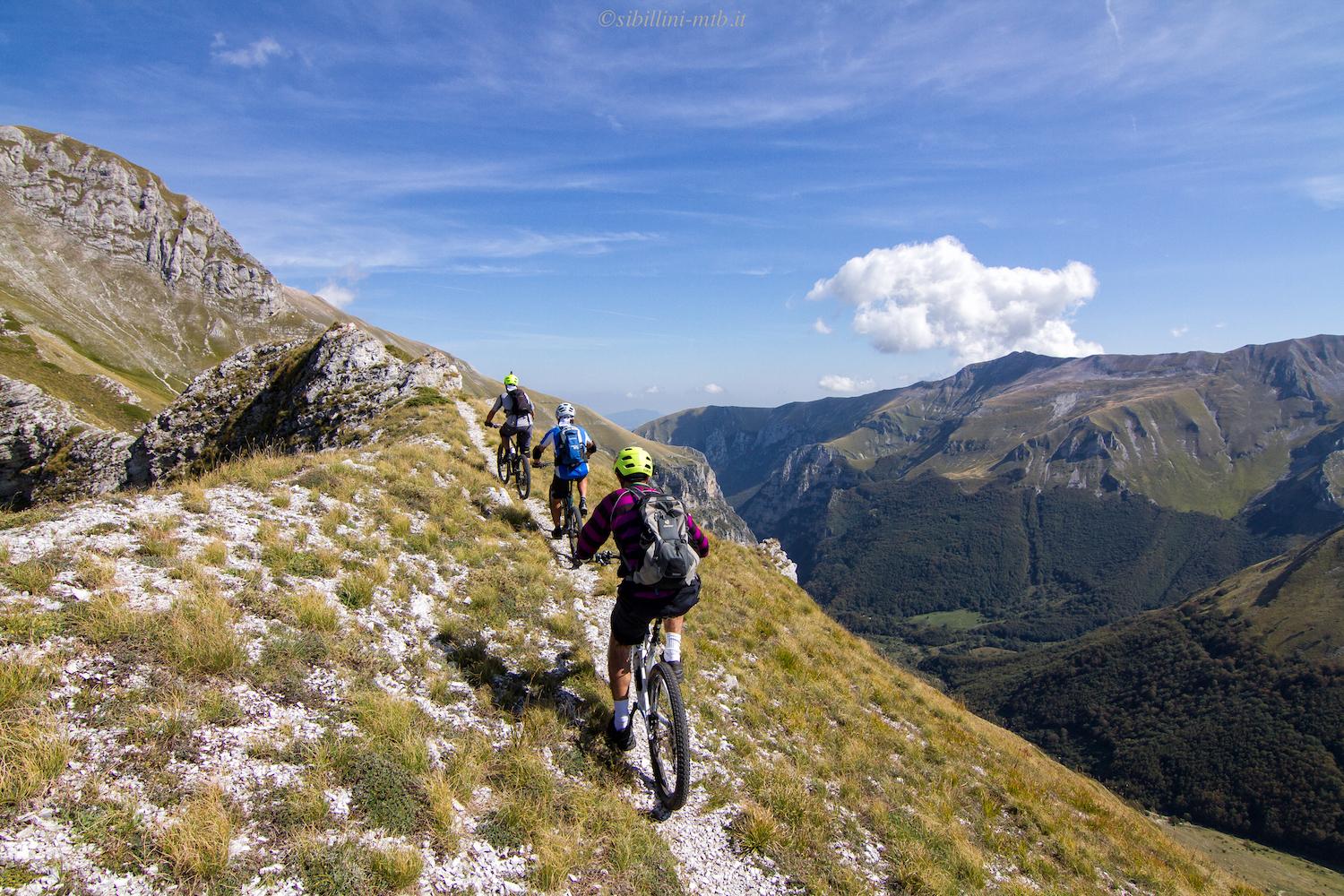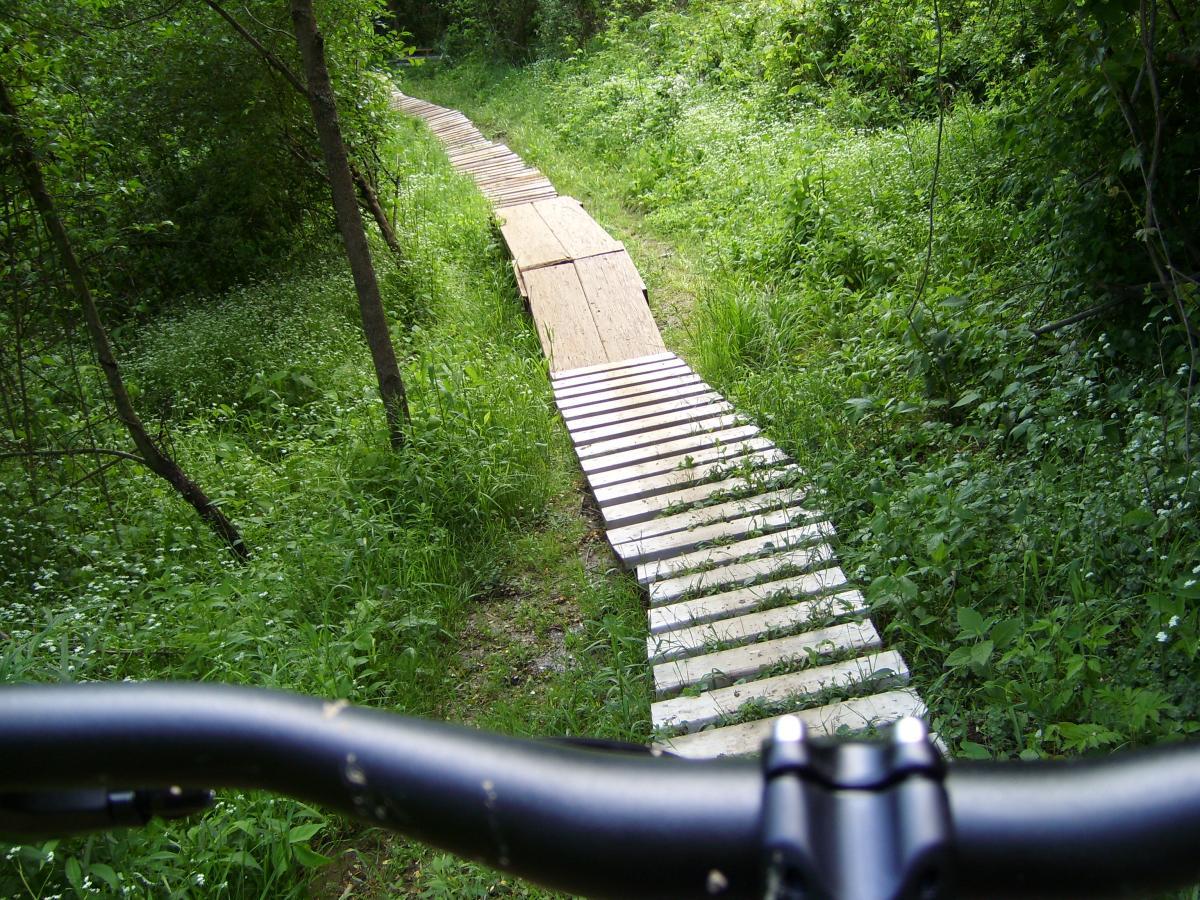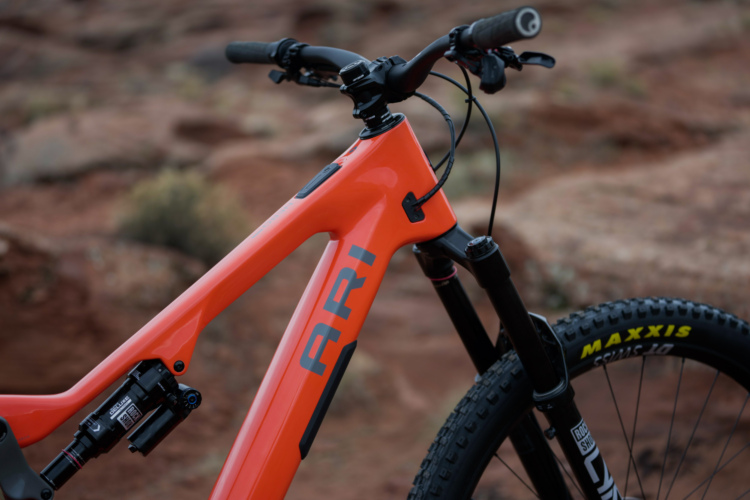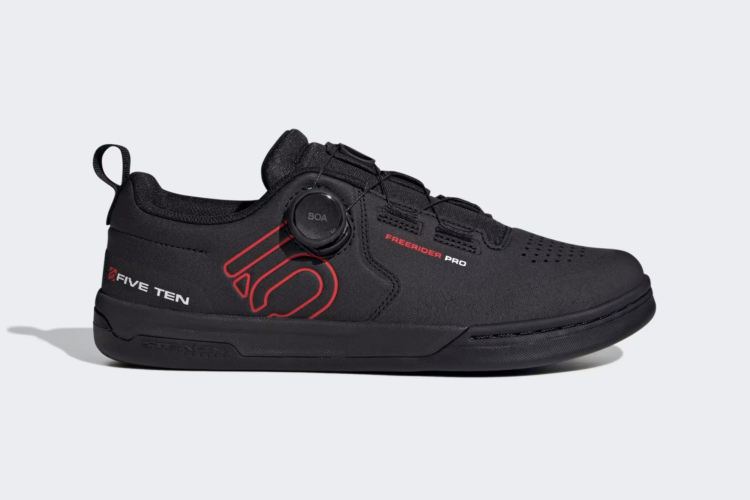
Last month, we explored the variety offered by different trail surfaces and configurations, but there remains much more variety offered for us knobby-tired enthusiasts. Each of these trail surfaces and configurations can exist in entirely different environments and geographies, exponentially increasing the total possible varieties available to the two-wheeled adventurer. Each type of topography has its own characteristics which offer a unique experience. Most of us have just one or two predominant topographies close to home, which provides an impetus for us to want to take those great mountain biking road trips. Let’s explore some of the great geography we love to explore, either at home or on the road.
[see_also id=’200420′]
Mountains

The sport is called “mountain biking,” so a mountain range is the obvious landform to draw our first thoughts on the sport. Mountains can be large or small, steep or gradual, lush or dry. The variety in mountains alone gives us so much to look forward to on a bike. Mountains give us those quad-busting, lung-searing climbs. They challenge our fitness. They test our resolve. They cause us pain; but they do so with great benefit. They give us goals. They give us tremendous satisfaction when we achieve those goals. They provide us inspirational scenery along the way. And after the hard work is done, they give us those epic downhills that provide the highs that keep us coming back, time after time, in spite of the struggles they demand up front.
Foothills

Foothills are just mini-mountains. They tend to have similar characteristics to mountains, just on a less epic scale. The climbs and descents aren’t as long and the scenery a little less dramatic, but that doesn’t mean the riding can’t be every bit as awesome. Foothills offer top quality singletrack. Even in a state like Colorado, renowned for the mighty Rocky Mountains, some of the most favored trails actually lie in the smaller foothills between the great plains and the high alpine. Foothills are generally more accessible, have a longer riding season, and still provide excellent fun bang for your effort buck.
Forests

Forests can exist in mountains, foothills, or even on flat terrain, all of which provide variety itself. But forests provide even more variety based on the type of forest. Cruising through the dense eastern hardwoods lends a completely different vibe from cranking among the more sparse western pines. Every forest has its own unique character. No matter how many forests I ride, each new one adds to my variety set. What’s more, even the same forest provides variety from one season to the next, so you don’t have to travel to different places to get that variety if you live near a forest. Whether it’s the magnificent reds and oranges of New England’s gorgeous maples, or the radiant gold of the Rockies’ aspens, the woods are constantly changing for your pleasure. If you have a fat bike, you can head out into the woods in the winter when the branches are bare and the ground white for yet another completely different experience.
[see_also id=’197640′]
Jungles
Jungles are a special case of forests. They are extra lush and the ultra-dense vegetation creates yet another completely different experience and yet another unique vibe. There aren’t legitimate jungles in the United States, but some of the forests in our southern states can be rather jungle-ish. For those willing to travel to more equatorial regions, serious jungles await your knobby-tired adventures. Often billed as the world’s most difficult stage race, the La Ruta De Los Conquistadores traverses the entire nation of Costa Rica from the Pacific to the Atlantic ocean, penetrating remote, inhospitable jungles for most of its distance.
Deserts

Living adjacent to some of the continent’s most magnificent mountains when I first began mountain biking, I was a little confused when people would talk about riding in the desert. Then, I made my first trip to Moab and was amazed. But I figured that was just about the slickrock, not the desert (Moab had yet to build all the wonderful singletrack they have today), so I retained my anti-desert bias. Then I made my first trip to Phoenix and Tucson. With nary a patch of slickrock in sight, the Sonoran Desert captivated me, and begged me to return, which I have–many times–always with great appreciation for the variety offered by the wonderful desert trails.
Prairies

Prairies are the last location most of us would think of as worthy places to ride a mountain bike, but in doing so, we would miss some outstanding mountain bike opportunities. The prairie that makes up the mountain-less void between east and west includes two IMBA epic rides. This is not just some form of token appreciation to keep the flatlanders from feeling unloved; North Dakota’s Maah Daah Hey and Kansas’ Siwtchgrass fully live up to their “Epic” billing. Throw in the likes of Missouri’s Landahl, Texas’ Palo Duro Canyon, Iowa’s Sunderbruch, and Illinois’ Kickapoo, and the nation’s prairies can keep many a rider happy with their fat tire offerings.
Your Turn: What’s your favorite topography and why? Share your tales of the trail in the comments section below.





















7 Comments
Aug 24, 2017
Aug 26, 2017
Aug 24, 2017
Aug 26, 2017
Aug 24, 2017
Thanks for the adds. Leave it to a forestry guy to be able to specify the difference between "forests" and "woodlands"!
But it makes perfect sense. I absolutely love the pinion/juniper woodlands of the American Southwest. Whether it be Fruita, Canon City, Cortez, or especially Sedona, these woodlands have a character all their own, quite distinct from the taller forests and thus, add variety to available topography.
Aug 26, 2017
Aug 26, 2017